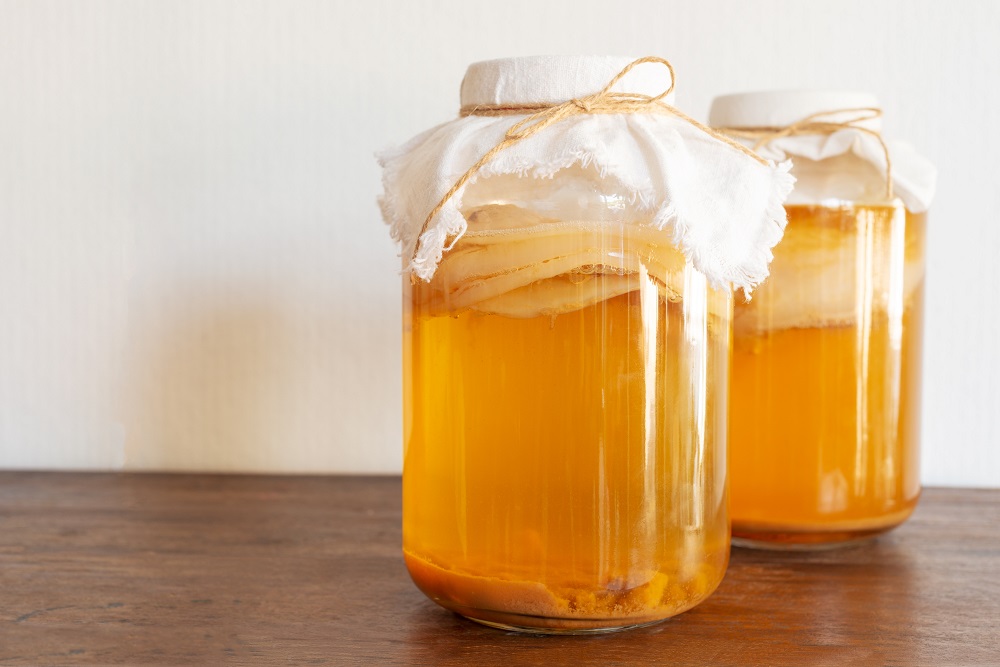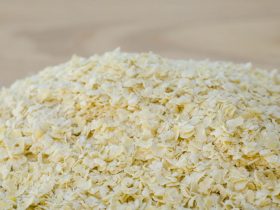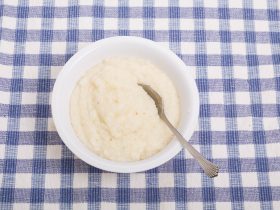Kombucha is the fermented form of the worldwide consumed green or black tea, purported for its supposed health benefits. This article in particular mostly refers to the kombucha tea itself and not the bacterial culture that is used to ferment green or black tea.
While kombucha is technically already colonized by bacteria and fungi, these species are considered more “friendly” to the human body and as such are not harmful to consume, unlike other species of microorganisms1. Despite this, kombucha can still go bad, and will only last as long as three months in the refrigerator.
What is the Best Temperature to Store Kombucha at?
Being a fermented drink that may still be undergoing active chemical conversion, it is important to halt these reactions in kombucha as soon as the desired levels of fermentation have been reached.
In the field of chemistry, the opposite of a catalyst in balanced chemical reactions is referred to as an inhibitor. In the case of stopping further fermentation and degradation in kombucha, cold temperatures alone are sufficient to act as an inhibitor.

Knowing this, the ideal temperature to store kombucha at is approximately as low as 40°F, or the average temperature of most commercially-available refrigerators.
Keep in mind that the symbiotic colony of bacteria and yeast or SCOBY may arrest all life functions when placed at temperatures far below 40°F, though this will not kill them. If you wish to keep your SCOBY active and thriving, it is best to transfer it to a new batch of kombucha in the event that temperatures are too low.
How Humid Should Kombucha Storage be?
Kombucha, being a jar or bottle-based beverage, is not affected very much by ambient humidity.
So long as the kombucha’s storage vessel remains sealed and away from any directly dehydrating sources such as sunlight or radiators, it will encounter no loss in quality or health benefits.
The SCOBY, however, requires itself to always be partially or entirely submerged beneath tea and similar nourishing fluids, since being left out to dry will kill the bacteria and yeast colonies2.
This is not as applicable if you are intentionally dehydrating the SCOBY, though this process requires further steps to rehydrate and re-activate the microorganisms.
How Long Does Kombucha Last out of the Fridge?
As previously mentioned in this article, if the growth of microorganisms and conversion of sugars to alcohol are not inhibited by cold temperatures, the kombucha will only continue to ferment.
Leaving your kombucha out on the counter at room temperature will increase its alcohol content as well as affect its taste, developing a stronger alcohol-like flavor.
Kombucha will keep on the counter for only as long as two days before becoming possibly unsafe to consume.
How to Store Kombucha in the Fridge
To first begin refrigerating your batch of kombucha, it is important to ensure that it has not been fermented for too long or that it has begun to spoil.
Only allow kombucha to ferment for up to three days before placing it in the fridge. Apart from this, it is vital to inspect the kombucha for any signs of spoilage.
Once making certain that your kombucha is safe to consume, simply remove the SCOBY from the surface of the tea and move to a fresh batch of as of yet unfermented kombucha.
Take the already-fermented kombucha bottle and place in the fridge for up to three months, though keep in mind that if your fridge’s temperature is not low enough, the sugars in kombucha may still continue to undergo conversion into alcohol.
Can Kombucha be Frozen?
While freezing kombucha will allow it to maintain its edibility for a longer time than simply refrigerating it, it is important to keep in mind that if you have brewed kombucha for its supposed gut microbiome benefits, freezing it will kill many of the bacteria and fungi present.
The act of freezing at a microscopic level is violent for microorganisms, as water within their cell walls will expand and crystallize, rupturing their bodies.
Knowing this, choosing to freeze your kombucha depends entirely on your goals for the fermented tea. If you are consuming kombucha for any health benefits it may have, it is better to simply refrigerate it.
How to Freeze Kombucha Tea
In order to freeze kombucha, you will need freezer-safe plastic or glass containers, ice, salt, a large bowl as well as a freezer capable of reaching temperatures as low as 32°F.
It is also good to note that the usage of metal covers, stirrers or other implements while storing the kombucha will kill some of the bacteria and fungi present in the tea. It is best to avoid using equipment of this material if possible.
First, transfer the kombucha from its original fermentation container to its new storage vessel, ensuring that the SCOBY has been removed beforehand.
Fill your large bowl with water and ice. Salt the ice-water liberally, as this will lower the freezing temperature of water and as such allow you to flash-freeze the kombucha.
Place the newly transferred kombucha to the ice-water and leave it be for approximately five minutes. Once these five minutes have passed, simply remove the kombucha container from the ice water, dry the surface, and place in the freezer.
If followed to the letter, these steps will allow your kombucha to last for as long as eight months in the ideal conditions.
Signs of Kombucha Going Bad
Because of how kombucha is fermented and the exact cultures used in this process, it is often extremely difficult to tell if kombucha has begun to spoil or not. Fortunately, there are a few subtle hints that are important to keep an eye out for.
While SCOBY itself is a form of mold, should you notice any other types of molds that are a different color or shape in the kombucha, it is often a good idea to discard the bottle. This is the hardest sign of spoilage to identify, owing to the difficulty in differentiating different cultures of fungi in kombucha.
Apart from visual identification – if the kombucha has begun to taste far too acidic or alcoholic, it is likely that it has fermented for too long and that it was improperly stored. While not necessarily harmful, an off-taste could hint at the kombucha beginning to develop other forms of microorganisms that are not as beneficial as SCOBY are.
Should you notice long cotton-like strands or tendrils floating from the surface of the kombucha, this is simply yeast cultures, and are entirely normal. It is best to remove these before bottling the kombucha, as they may be unpleasant texturally.
References
1. BETH KRIETSCH (February 2019) “Is Kombucha Healthy? Here’s What Experts Say” Time Magazine
2. Villarreal-Soto, Silvia Alejandra; Beaufort, Sandra, et al. (March 2018). “Understanding Kombucha Tea Fermentation: A Review: Understanding Kombucha tea fermentation…”. Journal of Food Science





Hi, I'm Dom
Dom Eats was started to help other people fall in love with food. While cooking can feel intimidating, it doesn't have to be.